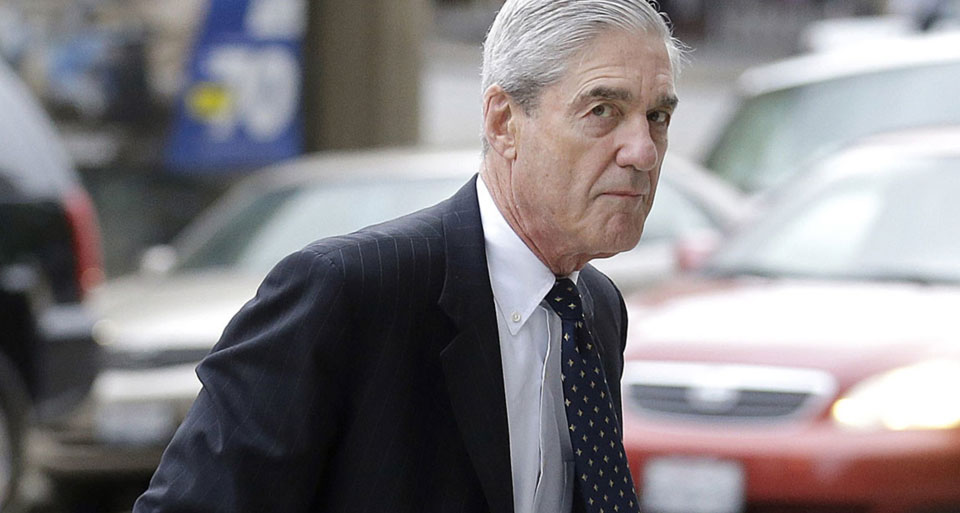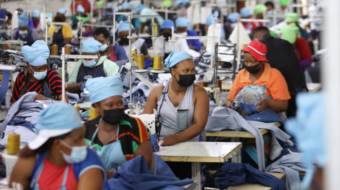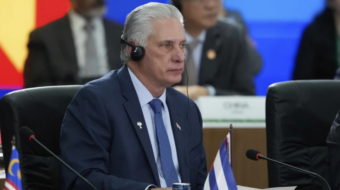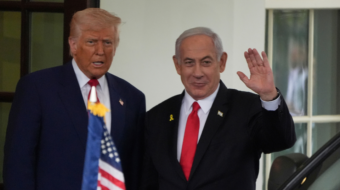
There is something rotten about the way the Russiagate probe is going these days, and the plausible explanations are quite troubling.
The first thing that smells bad is the fact that the White House Counsel Don McGahn and former chief White House strategist Steve Bannon have the same lawyer—William Burck. This is strange considering that the Trump White House and Bannon have been at each other’s throats in recent days, with the president and Bannon attacking one another in numerous forums including on Twitter, on the cable news shows, and in best-selling books.
As the Russia investigation started getting hotter last fall (and before Bannon got his lawyer), other White House staff had already been lawyering up. It turns out that not only do McGahn and Bannon share Burck as their lawyer, former Chief of Staff for Trump and GOP chairman Rence Preibus is also still retaining Burck.
Yesterday, we heard that Bannon refused to answer questions from the House Intelligence Committee, claiming executive privilege. During his appearance, Burck was on the phone with McGahn’s staff at the White House getting clearance on which questions Bannon was allowed to answer.
Corey Lewandowski, former Trump campaign manager, refused to answer questions when he appeared before that same committee, but he did not even bother to claim any kind of “privilege.” He simply said he preferred not to answer the questions, and the GOP-led investigatory committee essentially said, “OK, that’s fine!”
Earlier, Donald Trump Jr. had similarly refused to answer questions about what he had discussed with his father, claiming attorney-client privilege. Neither he nor the president are attorneys, however, so the claim was totally ridiculous. Nevertheless Trump Jr. prevailed with the GOP-led committee again saying, “No problem!”
Allowing subjects of your inquiry to refuse to answer questions as they see fit, of course, renders such probes meaningless. More ominous for our democracy, however, such a practice lays the groundwork for making all future congressional investigations equally as meaningless.
Now, back to Mueller.
Former Trump campaign manager Paul Manafort was scheduled to testify before congressional committees last July. He had been issuing statements to the effect that he would fully cooperate with those committees and answer all of their questions. On the night of the day he first testified before the House committee, his home was raided by the FBI, and he was hauled off to jail. The only explanation that makes sense is that Mueller wanted to preserve any evidence he could get from Manafort and prevent the GOP-led committees in Congress from screwing it up for him. He was proven right, as shown by the criminal charges laid against Manafort.
Earlier this week, we heard that Mueller had issued a subpoena for Bannon to appear before a Grand Jury. It made sense again. It was the way to prevent the GOP-led House Judiciary Committee from letting Bannon get away without answering questions. Also, when one appears before a Grand Jury one does so without the benefit of a lawyer being present on one’s behalf. When one appears before a congressional committee, he or she can bring in a whole bank of lawyers. Mueller, of course, well understands that anything discussed before GOP lawmakers fronting for Trump will make its way quickly back to the White House and that a grand jury hearing can prevent this.
So Mueller’s choice of taking the subpoena route made sense. It did, at least, until yesterday when things seemed to get really strange again. First, Bannon, who refused to talk to Congress, announced he would tell Mueller “everything.” Then, another oddity was thrown into the pot when Mueller said Bannon could come in (along with his lawyer) for an interview with prosecutors and would not have to appear before a grand jury after all.
As if all of that weren’t unexplainable enough, there were reports that Mueller said there is no conflict of interest in all these scoundrels having the same lawyer.
One can’t help but think something very bad could be afoot here. Is Mueller, as many have hoped, getting real cooperation from Bannon, as he has presumably gotten from Michael Flynn? That would be a good thing. Or is something else afoot? Could Mueller be trying to throw the administration a bone, hoping to improve his chances of staying on as Special Counsel? Or is the fix in to make the whole investigation fizzle out? In short, we don’t know.
It has always been important to defend Mueller against attacks coming from the Trump administration and its allies in Congress. But the bottom line remains that Mueller operates under authority given to him by the very administration he is investigating, specifically the Jeff Sessions-led Justice Department, which, as we know, is probably one of the most corrupt Justice Departments in history.
Taken together, all of this demonstrates why the country would be well-served to heed what people like Rep. Maxine Waters D, Calif. has been saying since the beginning of this whole mess. What we need, as she has said over and over again, is an independent special prosecutor who is not beholden to the Congress, which right now does Trump’s bidding, or to Trump and his Justice Department. We had an independent prosecutor when Richard Nixon was successfully impeached and forced to resign, and we need that now. The future of the investigation and the future of democracy itself requires that Congress appoint an independent special prosecutor beholden to no one but the people.










